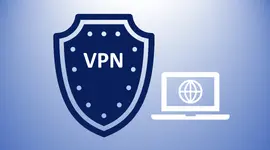In an era where more and more services are moving digital the use of a Virtual Private Network (VPN) has emerged as a mainstream tool to protect against security threads and maintain privacy online. Over the last decade VPNs have moved from primarily being used by IT professionals and those connecting to work networks to everyday online users.
My first experience with a VPN for non IT related work was using a South Korean VPN to gain access to a new PC game before it was available in the United States. The release of the game was on a rolling schedule to prevent bombardment of the download servers. I recall the connection being slow but the task was accomplished and I was able to play the game hours before it was released in the United States.
Over the last few years I have started using a VPN for other reasons. I've used a VPN to access a streaming TV show that my wife really wanted to watch but was only available in the United Kingdom. This last year I used a VPN to access baseball games that were unavailable in my market.
Now this is the part of the article where I tell you that you need to know and follow the terms of service and other agreements you have made with online providers regarding the use of VPNs. Your country, regional, or local government might have laws dictating their use so it's best to understand potential consequences before using a VPN to access content that you would not otherwise have access.
The last reason I started using a VPN was for online privacy. A website knowing you IP address in of itself is not a reason for concern but as you engage with other users online, your IP may become a target for those trying to restrict your speech or for online hackers to gain access to your system based on information they obtained online.
Over the next few months I plan on writing many articles on VPNs and will be reviewing different providers.
Attached to this article is a poll and I hope you take the time to answer and see why other users are using VPNs to access content online.
Article photo by Freepik
My first experience with a VPN for non IT related work was using a South Korean VPN to gain access to a new PC game before it was available in the United States. The release of the game was on a rolling schedule to prevent bombardment of the download servers. I recall the connection being slow but the task was accomplished and I was able to play the game hours before it was released in the United States.
Over the last few years I have started using a VPN for other reasons. I've used a VPN to access a streaming TV show that my wife really wanted to watch but was only available in the United Kingdom. This last year I used a VPN to access baseball games that were unavailable in my market.
Now this is the part of the article where I tell you that you need to know and follow the terms of service and other agreements you have made with online providers regarding the use of VPNs. Your country, regional, or local government might have laws dictating their use so it's best to understand potential consequences before using a VPN to access content that you would not otherwise have access.
The last reason I started using a VPN was for online privacy. A website knowing you IP address in of itself is not a reason for concern but as you engage with other users online, your IP may become a target for those trying to restrict your speech or for online hackers to gain access to your system based on information they obtained online.
Over the next few months I plan on writing many articles on VPNs and will be reviewing different providers.
Attached to this article is a poll and I hope you take the time to answer and see why other users are using VPNs to access content online.
Article photo by Freepik
Attachments
Last edited:


